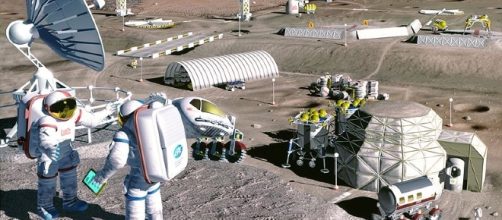Absent a public rollout of a Trump space policy, the media has been reduced to making guesses based on the facts at hand. Eric Berger at Ars Technica notes that the new Executive Director of the National Space Council Scott Pace has been a skeptic of outsourcing a lot of NASA operations to commercial space, especially SpaceX. On the plus side, Pace favors a return to the moon in which both international partners and commercial firms will participate.
Is skepticism of commercial space still warranted?
Pace has been an outspoken skeptic of commercial space ever since President Barack Obama ended the Constellation program and instituted commercial crew to restore America’s ability to send astronauts into space after the last flight of the shuttle.
His position had been that SpaceX especially did not have the track record of successful launches that would justify placing the future of human space flight partly in its care.
Seven years later, as Pace freely admits, that position is harder to maintain. SpaceX, despite two rocket mishaps, has established a solid record of successful flights. Moreover, the company has successfully made its Falcon 9 partly reusable. The other launch vehicle in the commercial crew program, the Atlas 5, also has a good launch record. Moreover, SpaceX has upped its launch rate and has reduced costs substantially.
Blue Origin is another entrepreneurial space launch company that is developing reusable rockets. It's suborbital New Shepard has already performed spectacularly in tests and will, very soon, be put into service as a tourist rocket for taking the wealthy and adventurous just past the edge of space.
The orbital New Glenn is expected to fly by 2020.
What does this mean for a return to the moon?
Pace seems to favor a mixed strategy when it comes to a return to the moon. Commercial rockets such as the Falcon Heavy and the New Glenn would take cargo to the lunar surface. However, the Space Launch System with the Orion spacecraft will be the sole means of carrying astronauts to cis-lunar space. Pace does not favor using commercial spacecraft to take astronauts into deep space.
That position may have to be reevaluated if SpaceX can follow through on its announced plans to send two paying customers in a jaunt around the moon in a specially configured Dragon launched by a Falcon Heavy. SpaceX claims that it will accomplish this feat in 2018. However, even if the flight occurs later but before the first crewed Orion mission, the idea that commercial spacecraft are unsuitable to take astronauts beyond low Earth orbit will become untenable.


